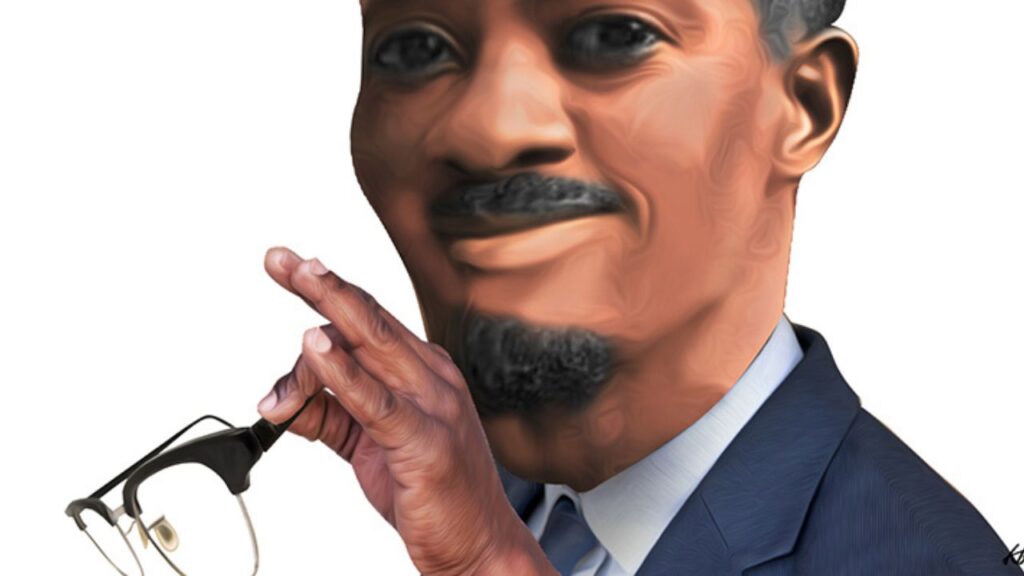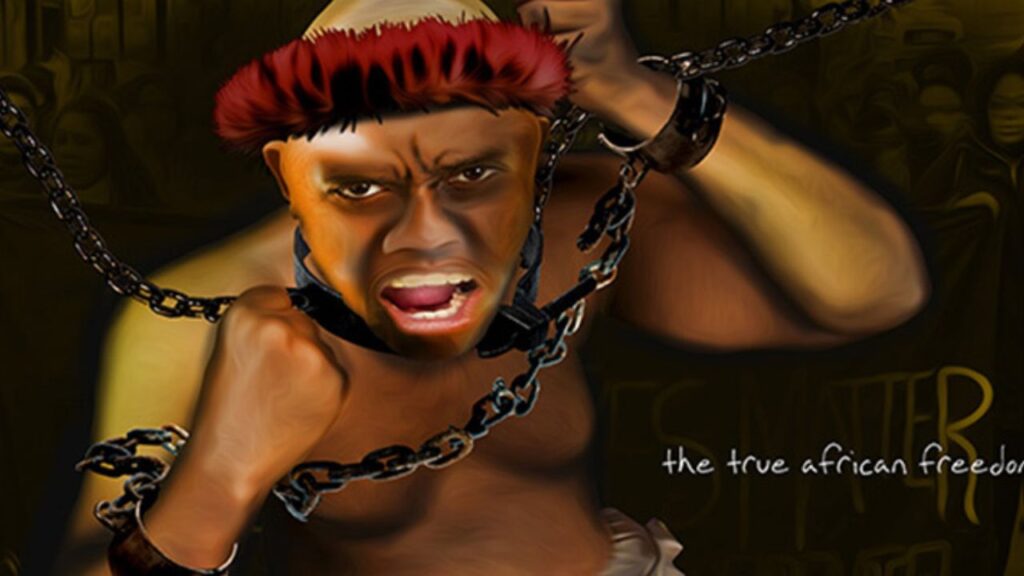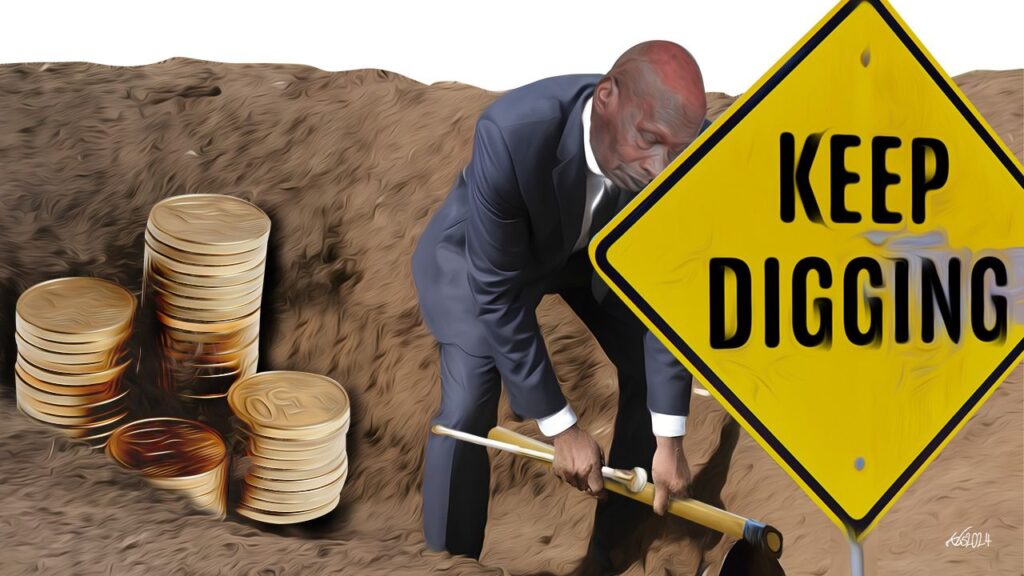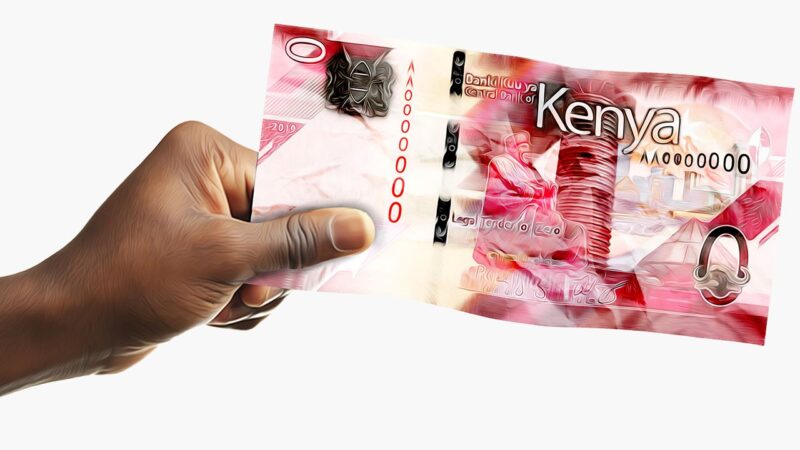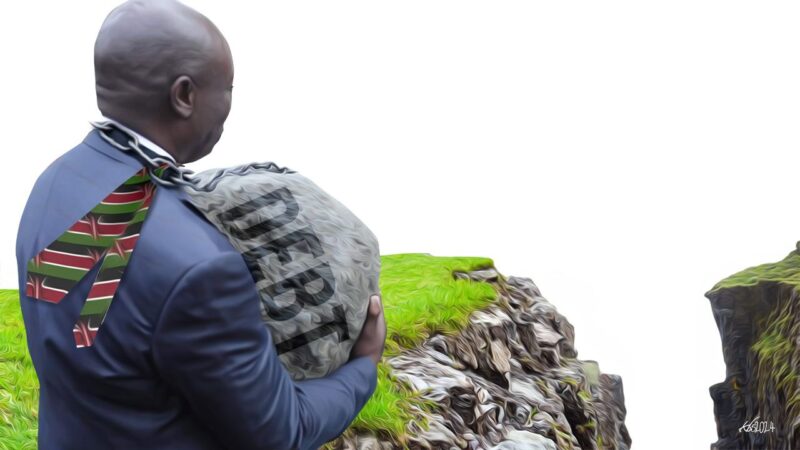On the evening of the day that saw twenty National Youth Service (NYS) officials arraigned in court to answer charges of institutional corruption, I went to see one of the lawyers who had been in court and who spoke to me on the condition that I would not disclose her identity. She was nonplussed about all the hullabaloo surrounding the NYS scandals and the subsequent parading of some senior government officials in the corridors of justice. “The courts have seen these kinds of court dramas before: nothing new and nothing out of the ordinary. It’s their season. They will come and go and the courts will go back to their usual routines. Take it from me, the courts are not in a mood to execute the Executive’s factional wars in the name of fighting state corruption,” she stated.
The advocate described the ensuing drama as a big, noisy circus. “I’m a trial lawyer,” she said. “If there will be any prosecutions, I will be glad for another day. What I’m saying is this: NYS 1 was juicier than this NYS 2 farce – were there any prosecutions? I hear it is the ‘Imperial’ legacy term. Please get me correctly: there will be no prosecutions, this is a circus show and NYS 3 is yet to come up.” (The lawyer was referring to the two multi-billion-shilling corruption scandals at the NYS, dubbed NYS Season 1 and NYS Season 2, within a short period of just three years.)
“Fish begins to rot from the head”
The fight against institutional corruption is not about fixing a certain cadre of people who don’t have the political connections and wherewithal and who will most likely be innocent victims or pawns in the political chess games of corrupt and powerful individuals, said the advocate. “It is immoral to harass and punish civil servants who are used as conduits of corruption by powerful state officials and politicians and when the crunch time comes, instead of the hammer falling at the right place, they are used as scapegoats. The NYS 1 corruption scandal involved powerful state officials who owned up to money getting lost. Some of them were even hauled in the courts of law – were there any convictions? Some of the NYS1 culprits are even more powerful today and presiding over bigger budgets. Let him [President Uhuru Kenyatta] fool no one that he is fighting corruption. Fish begins to rot from the head.” The lawyer acknowledged that the civil servants were also corrupt and the reason they were being hounded is because they had exposed their greed, hence were found culpable.
A Treasury official told me that the fish had been rotting for a long, long time. “What you’re seeing is the whirlwind before the calm. Everything about this razzmatazz sting operation stinks to high heaven. The biggest amount of money in the government is usually stolen just before the government closes its financial year and reads its budget. This year’s budget was read on June 14, so that means the 2018/2019 financial begins on July 1. It is not, in my view, a coincidence or for nothing that the government allegedly decided to release the dossier on NYS weeks before the national budget day. The coffers will be emptied before they are refilled again.”
The official said that in the two weeks before the budget is read, those who have the authority to incur expenses (AIEs), accountants and procurement personnel scheme to pilfer government money. Since the government is expected to close its books, all the monies that have been allocated for whatever use have to either be returned or expended. “This is the time when fictitious payments are paid out by accountants and AIE holders, who include directors, heads of department and permanent secretaries. The two weeks before the budget is read are always very busy as procurement officers invent ways of disbursing government money to dubious and hollow companies as they collude with the accountants and AIE holders to defraud the government,” said the Treasury official. “It is ridiculous for the President to talk about using polygraphs to gauge whether civil servants will be corrupt or not. Corruption is solely an ethical issue – it is not about whether you can master a truth test. If the government is interested to know, for example, who among the civil servants are corrupt, it should begin by conducting a lifestyle audit among AIE holders, accountants and procurement officers.
“The biggest amount of money in the government is usually stolen just before the government closes its financial year and reads its budget.”
The officer told me that the NYS report on the said scandals was ostensibly leaked by the National Intelligence Service (NIS) to media houses to create the impression that the media had simultaneously and suddenly stumbled on a massive corruption scandal. “These NYS scandals have always been there, they are not fresh scandals,” said the civil servant. “The impression one gets from government is that the corruption being exposed now could have happened just recently. Suffice it to say, they are a smokescreen of a much bigger scam that could be on its way. They are a farcical high drama of up-round-and-merry-go-round shows and Kenyans love street shows for their cathartic effects.”
“This is no longer corruption but outright theft”
But for Babra Singh, an elderly shopkeeper in Nairobi, the NYS scandals are like the street dramas he has witnessed in the city for many years – except that these scandals are not entertaining but truly tragic. “This is no longer corruption but outright theft,” said Babra in his tiny office on Kirinyaga Street. “I witnessed Jomo Kenyatta’s corruption, then Moi’s, which, sad to say, was assisted by some of our crooked Asian brothers. Then came Mwai Kibaki’s corruption with the Chinese, which was also massive. But Uhuru’s corruption has spiralled out of control; it is no longer corruption, it is purely mega theft, looting of unprecedented proportions, criminally driven by people who simply don’t care about the country.”
Babra was 18-years-old when he first set up his bicycle duka on the dusty Grogan Road in 1954, two years after President Uhuru Kenyatta’s father, Jomo, was detained by the British colonial government and a state of emergency was declared. Grogan (now known as Kirinyaga) Road was named after the rabidly racist Briton, Ewart Grogan, who later emigrated to apartheid South Africa in 1961 after he swore that he would never be ruled by a black leader (Kenyatta had been released from detention in 1959 and was poised to be Kenya’s first Prime Minister.)
“Since 2015, I’ve been laying off my workers one by one; what you see here is just skeletal staff. The cost of production exacerbated by unwieldy importation tax on spare parts, hefty bribes demanded by the customs officials and theft of spare parts by the very same customs officials had become unmanageable,” said Babra, who is a devout Sikh. “I’ve seen my workers – some of them have been with me for 40-plus years – become poorer and poorer by the day. I’m 82-years-old now. Much of my energy has been sapped out of me. I’m no longer as strong as I used to be and I’ve been keeping the company running, not because of me, but because of my workers.”
A. Gikandi, an aspiring politician from Kiambu County, told me that Kiambu residents, who happen to be the bastion of Uhuru’s ethnic support base, are poorer today than when Uhuru became president in 2013. Gikandi, who did not want his full name revealed said, “They’d very much like to explain their increasing levels of poverty by blaming other forces and not President Uhuru’s government, maybe because that makes them feel better, but the truth of the matter is they just can’t: his government has not helped them in any way. These spurious NYS scandals have not made them angry because they are fast becoming immune to anger. They are simply bamboozled that so much money, running into billions, can be stolen to enrich a few well-connected cabals while they can’t afford the daily necessities of life.”
A. Gikandi, an aspiring politician from Kiambu County, told me that Kiambu residents, who happen to be the bastion of Uhuru’s ethnic support base, are poorer today than when Uhuru became president in 2013.
The people are exasperated, he said. They are disengaged. Many of the “tenderpreneurs” mentioned in the scandals are millennials (he himself is one) “and, in fact, one of the people mentioned is a friend. To be honest, I was surprised when I saw his name mentioned. I called him up.” He added that his friend told him that connections to powerful state mandarins had got his name expunged from the final list of tenderpreneurs.
“It is absurd that you can pretend to prosecute a Principal Secretary and other senior civil servants and leave out the Cabinet Secretary,” said Gikandi. “Nothing happens in the ministries without full authorisation of the CS. Is it a miracle that the responsible CS is off the hook? She is properly wired.”
“Only a revolution will save this country”
Only a revolution will save this country, said the political aspirant. “The conditions are not ripe yet – but we’re headed there. After the national budget pronouncements, life will become even harder. We are headed for tougher times because austerity measures are here with us.” The crux of the matter, said Gikandi, is that it is the Kikuyu people who are suffering the most, but they cannot vocalise their disenchantment because they have been made to believe they have a collective duty not to be seen to be critising one of their own. “Don’t be surprised if the revolution begins with them,” he added.
A day after President Uhuru Kenyatta presided over the June 1st Madaraka celebrations this year in Meru town, 250km north of Nairobi, I went to see my friend Dennis Kimani, who is a second-hand clothes seller. “Did you listen to Uhuru yesterday?” he asked me. “I was so disappointed by Uhuru, talking about some gadgets to detect lying civil servants. I asked my wife whether what I was hearing was real. The people are crying, the people are suffering, the people are down, and all what Uhuru is talking about is importing lie detectors.”
Dennis told me he voted for Uhuru in the 2017 elections. “We Kikuyus are in a bind. When it comes to politics, we exhibit a herd mentality that has become so difficult to extricate ourselves from. On October 26 [the day of the repeat presidential elections], I had to be seen to have gone to vote – by my relatives and business friends – lest I’m branded bad names such as I’m a traitor, betrayer to the cause, NASA sympathiser, a Luo, or worst of all, have my Kikuyu identity questioned.”
For Jayne Rose Wairimu, a mother of three and a bookseller in Thika in Kiambu County, 40 km northeast of Nairobi, the decision not to participate in electoral politics was precisely because of “what we are now reading in the press on the orchestrated NYS scandals”. She said she did not vote in 2017 because elections had become pointless and futile. “The NYS saga is a racket by the two most powerful politicians in the country, President Uhuru and his deputy William Ruto. These monies that are being flung right, left and centre have been stolen on their behalf. You cannot convince me otherwise. It is so immoral to parade non-entities and hapless civil servants to hoodwink Kenyans that the state is now fighting corruption. NYS is Uhuru’s eating machine. Kibaki had his, the roads built by the Chinese. Moi’s was the Goldenberg scandal and such is life.”
Wairimu said that in this country you can engage in all manner of state corruption as long you have two cardinal things: tonnes of money and political influence. “Remember Kabura? She even confessed to carrying sacks of money. On whose behalf was she ferrying the money?”
Josephine Kabura was believed to be the hairdresser of the former influential and powerful Devolution Ministry Cabinet Secretary, Ann Waiguru. In her affidavit, Kabura named Waiguru as the focal point of the first Sh1.6 billion heist at NYS. The scam led the embattled Waiguru to resign in November 2016, but not before President Uhuru had defended her as a hardworking CS. Of particular interest was that in one year, the NYS budget had jumped from Sh13 billion to Sh25 billion. “Trust me, I smell a rat…There’s huge corruption coming… And then, as usual, the government will spin another yarn – ng’ano cia marimo (ogre tales). Uhuru is not fighting corruption, he’s engaging in a political circus,” said the bookseller.
“Remember Kabura? She even confessed to carrying sacks of money. On whose behalf was she ferrying the money?”
In Kikuyu town, Kiambu County, Amos Gatina, a businessman, told me that the NYS missing monies have just not gone missing now. “These are old corruption networks, some of which, I believe, were used to finance the second presidential election on October 26. All these funny people who are now being lined up for show were just conveyer belts. These NYS scandals are a melodrama created by Uhuru and his people to fool people that in his second term he’s going to be a no-nonsense President.” That the corruption scandals were being revealed this time told a much bigger story than just the government being interested in chasing corrupt state officials, he observed.
Gatina told me that the country was being run by political and financial mafia. “The Central Bank of Kenya governor, Patrick Njoroge, has a lot of explaining to do. How can all these financial shenanigans be going on around him, yet he is sitting pretty? Second-tier banks were used as conduits to transfer and withdraw humongous amounts of money, flagrantly breaking all the banking rules and you want to tell me we’ve not ceded the country to criminal gangs?”
“It is Ruto who is being fought”
A public policy analyst who worked with Uhuru Kenyatta in 2003 when the latter was the leader of the opposition, told me that the President is all talk and nothing more. “These fulminations about the NYS scandals by Uhuru are just that – fulminations. His railing against the pervasive corruption is nothing more than ensuring that [William] Ruto doesn’t succeed him. The scandals have been released to the public, not because the government has suddenly stumbled on runaway corruption, but because the Deputy President must be stopped from becoming President in 2022. It is Ruto who is being fought. Period.” The policy analyst said that he had advised Uhuru, who chaired the Parliamentary Accounts Committee on financial and economic matters, regarding his lead role in checking Kibaki’s government. “He never did anything. His was to fulminate and exhibit great annoyance, but it was all for public show.”
In January 2009, Uhuru Kenyatta was appointed by President Mwai Kibaki as one of two Deputy Prime Ministers and as Minister of Finance. In May of that year, he was involved in a Sh9.2 billion scam at the Treasury. “Do you remember how Uhuru explained away the scandal?” the policy analyst asked me: “He casually termed it as a computer glitch.” The issue of an extra Sh9.2billion being added to the Supplementary Budget had been raised by Imenti Central MP, Gitobu Imanyara. On May 11, Uhuru, accompanied by his Permanent Secretary, Joseph Kinyua, told the Parliamentary Budget Committee that, “yes, there may be a typing error, but that to me may not be a major cause of alarm.” (The committee exonerated Uhuru.)
A senior civil servant at the Ministry of Health told me he was unimpressed by Uhuru’s supposedly tough talk on the NYS scandals. “The president’s unconvincing assurances that money stolen from NYS will be recovered, and the subsequent threats that all those involved in the scandals should carry their own cross and will be punished, is just blowing hot air.” The bureaucrat said that one of the biggest scams to be unearthed during President Uhuru’s first term was in the health ministry. “We all know some of the people involved in forming dubious companies to swindle the ministry of hundreds of millions of shillings. A scandal doesn’t stop being a scandal because it was schemed by close relatives of the president and, therefore, conveniently swept under the carpet and ignored.”
Ten days after the President had hosted the Anti-Corruption, Governance and Accountability Summit – a public relations breakfast meeting ostensibly to carry out a corruption reality check and to have a “frank” discussion on how to curb runaway corruption – at State House in October 2016, his sister, Nyokabi Kenyatta Muthama, was named as one of the people who, in September 2013, barely five months into Uhuru’s first term, had already formed a company to supply goods to the ministry. Nyokabi, with their cousin Kathleen Kihanya, had registered Sundales International Company Limited on September 12, 2013. On October 29, 2016, The Star reported that the company, had been awarded five tenders worth Sh270 million by the Kenya Medical Supplies Authority (KEMSA).
The senior civil servant at the health ministry told me that the media’s exposé of the scandal, so soon after Uhuru’s breakfast meeting, was a calculated move by the Deputy President to embarrass the President. Why? Because, he said, the Ruto camp had interpreted the summit as a charade whose upshot was that state corruption was being perpetrated by the Deputy President and his henchmen. “No sooner had the debate on corruption at State House been over than his [Ruto’s] people were all over at the ministry looking for the ‘Nyokabi files’. What I am saying is the Ruto people leaked that scandal to the media within days as a way of fighting back the mantra that ‘It is William Ruto who’s corrupt and not the President’. These factional fights between the Uhuru and Ruto camps did not start now.”
The senior civil servant at the health ministry told me that the media’s exposé of the scandal, so soon after Uhuru’s breakfast meeting, was a calculated move by the Deputy President to embarrass the President.
Seemingly frustrated by the unceasing corruption in his government, President Kenyatta, while talking down to, among others, the then Attorney General, Prof. Githu Muigai, the Auditor General, Edward Ouko, and the President of the Court of Appeal, Justice Paul Kihara (who succeeded Githu as the new Attorney General in 2018), moaned loudly: “Do you expect me to go set up a firing squad at Uhuru Park so that people can be happy?” Earlier on, the President, in a speech, had said that “corruption is just being used as a political circus.”
State House mandarins had invited two of the most vocal voices on state corruption, John Githongo and the economist David Ndii, to the breakfast meeting. The two declined the offer, which they interpreted as a ruse by State House officials to dupe Kenyans into believing that the President was serious about fighting corruption.
Indeed, a political stalwart of the former Party of National Unity (PNU), which ushered in Mwai Kibaki’s controversial second term and who is still very close to the former President, said, “There’s nothing new in these supposed corruption exposés. These are old corruption perpetrated by the state itself. Let’s cut to the chase: it is William Ruto who’s being fought here. This is about succession politics for 2022. He [Ruto] now needs to know who’s really in charge and what they are doing is cutting him to size.”
This former PNU official observed that Ruto showed his hand too early in wanting to succeed Uhuru. “He was abrasive, cocky and openly disrespectful to President Uhuru. You may be indeed intelligent and smarter than your boss, but in politics, you never undermine or seem to undermine the President. It is a cardinal rule anywhere in the world. Of all the things that Ruto learnt from [former president] Daniel arap Moi, he didn’t take home the most important lessons – humility and quietly biding your time.”
A bromance gone sour
In the days and weeks after assuming power in 2013, Uhuru and Ruto were inseparable, the “bromance” kept alive by sometimes dressing alike – matching white shirts and red ties, high-fives and always appearing in public with broad smiles and easy laughs. Then Uhuru would not have dared to describe his deputy as a reckless young man because it was a co-presidency. However, after a short five years, the bromance is fast fading. The pretence of co-presidency is gone and the exposure of corruption are signs of a factional fight over “brotherly love” gone sour.
“Uhuru couldn’t act between 2013 and 2017 because he needed a second term,” said a former Nairobi city councillor. “Now that he has crossed the bridge, he must wield the sword.” For the former councillor, “wielding the sword” means calling Ruto’s bluff. “Most of the corruption in the government is committed by Ruto and his henchmen, so he must be tamed. Between now and 2022, Ruto will not do anything else other than engage in presidential campaigns. Where do you think the money he is dishing out in harambee after harambee countrywide is coming from? The state resource taps must be shut tight to deny him any funds.”
The former councillor was, however, despondent about revelations about the looting: “Matikiire muno. Thirikari eno ya Uhuru ni iire muno.” (They’ve stolen too much, this Uhuru administration is stealing too much money.) “I pity our children and grandchildren. The country is sliding very fast into a bottomless pit and I don’t see a future at this rate.”
“Uhuru couldn’t act between 2013 and 2017 because he needed a second term,” said a former Nairobi city councillor. “Now that he has crossed the bridge, he must wield the sword.” For the former councillor, “wielding the sword” means calling Ruto’s bluff.
On May 30, 2018, while presiding over the issuance of title deeds in Embakasi East constituency in Nairobi County, President Uhuru Kenyatta, apparently unprovoked, described his deputy thus: “Hii kijana anaitwa Ruto unajua kila wikendi ana tanga tanga kila pahali. Atakuwa anapitia hizi machorochoro akiona kuna kitu inaenda kona kona mumwambie, si namna hiyo? Si namna hiyo? Tuhakikishe kazi ya wananchi imefanyika…tumekumbaliana? Ni wa ngapi wamesema tuwache siasa twende kazi? Twende kazi….” (This young man called Ruto is loitering everywhere every weekend. He has taken to roaming everywhere. He will be passing by and, if he sees things are not working as they ought to be, you report to him, is that okay? Is that okay? Let’s ensure the ordinary people’s work is done…are we agreed? How many of you concur that we stop politicking so that we work? Let’s get to work.)
The PNU official told me that the President’s use of the word “kutangatanga” (loitering) was a warning to Ruto. His remarks were intended to let his deputy know that “we are aware the slush funds you’re using every weekend to campaign are gotten from the state coffers”. Bottom line: the NYS corruption scandals have been unearthed supposedly to seal the loopholes. “So, take it from me, nobody’s going to jail, but Ruto must feel the full force of the state machinery and perhaps for the first time, must realise who’s in charge.”



